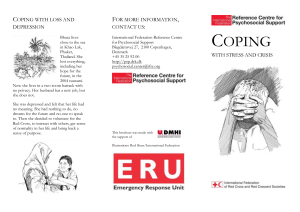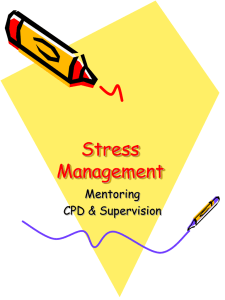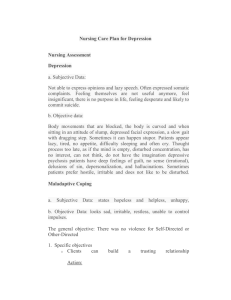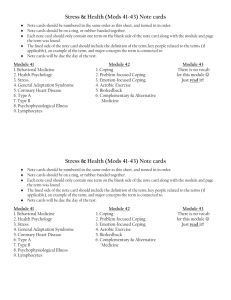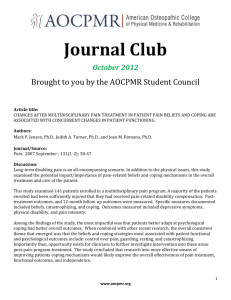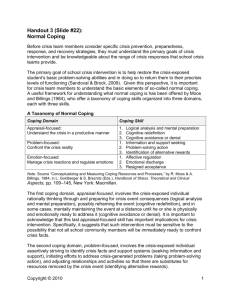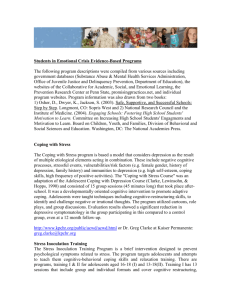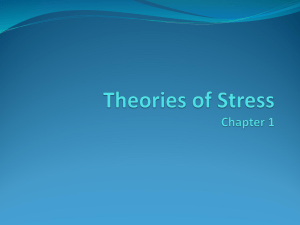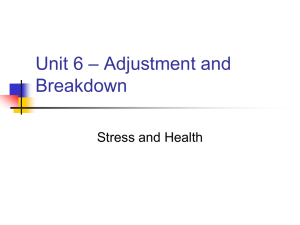Dealing with Stress: Some Lessons from Elite Sport
advertisement
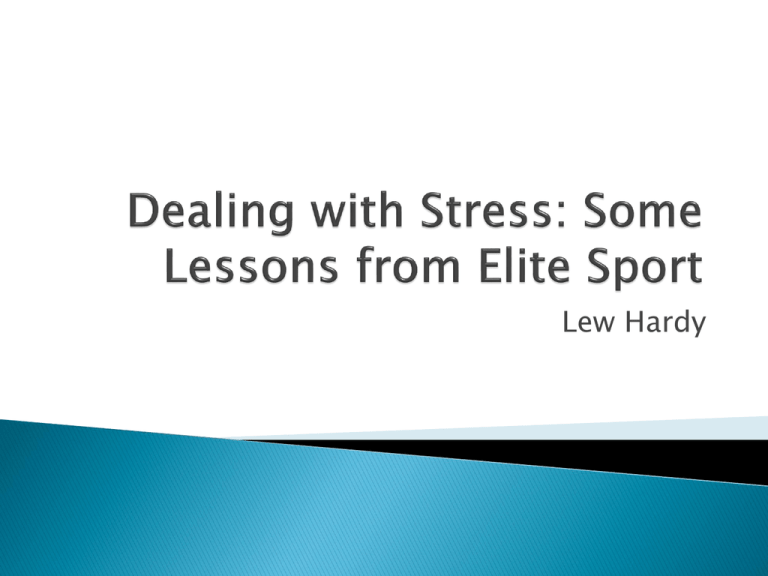
Lew Hardy The ability to resist the potentially disruptive effects of stress and produce best performances under most pressure Personality characteristics Coping strategies Mental skills Brain mechanisms Appraisal Anxiety, robustness, and resilience Stubbornness – fight and struggle Attributional style Dispositional optimism Sensitivity to threat “Men are disturbed, not by things, but by the views they take of them” (Epictetus, Ancient Greek Philosopher) Challenge Threat Loss Spring time in in Paris Catastrophising Over generalising Discounting the positive Mind reading Predicting the future /scare mongering Black and white thinking Taking things personally “Pain is just weakness leaving the body” Parachute Regiment maxim Intensity of symptoms Interpretation of symptoms Effects of anxiety – robustness and resilience (recovery) Smith et al (2001); Hardy & Hutchinson (2007); Beattie et al (2010) Persistence in maintaining goal directed behaviour Willingness to fight and struggle Middleton et al (2004); Bull et al (2005) “Ugly runs are worth just as much as beautiful runs” Tim Boon, Head Coach, England Cricket Development Programme Reasons we give for events – e.g., success and failure Attributional dimensions – controllability, stability, globality Impact on emotion and behaviour Elite performers attribute failure to controllable causes Gould et al (2002) Olympic gold medallists Hurricane victims Active not a passive state – opportunity to influence vs no need to do anything Links to attributional style Gould et al (2002); Carver & Sheier (1998) “Every day is a fishing day, but not every day is a catching day” Adie Byrrell, U17 Head Coach, England Cricket Development Programme Neural networks in the brain: Activation – readiness to act Arousal – response to new stimuli Coordination – make adjustments if necessary Reinforcement Sensitivity Theory Pribram & McGuiness (1975); Gray (1970); Gray & McNaughton (2000) Mental Toughness Low Reward Sensitivity High Reward Sensitivity Low Hi Punishment Sensitivity Active Coping Planning Suppress competing activities Vent or control emotions Social support: advice and emotional Positive reinterpretation and growth Acceptance Denial Disengagement: behaviourally or mentally Problem focused Coping – active coping, planning, suppress competing responses Emotional focused coping – venting/controlling emotions, social support Re-appraisal – positive reinterpretation, acceptance Avoidance – denial, behavioural, mental Gender differences Range of strategies Demands Supports Constraints See all the Choices Punishment conditioned stimuli Practice Coping skills Inspirational delivery Everything is good for you if it doesn’t kill you What we think influences what we do and who we are: appraisal, interpretation, and attributions Mental Toughness is not always pretty See danger early, find choices and positives later Wide range of well-rehearsed coping strategies Every threat and loss is an opportunity

